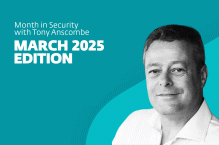The number of women working within the infosec industry “continues to remain low”, and could be exacerbating the skills gap within the industry.
This is one of the main findings of the Biennial Women in Cybersecurity Report from the Center for Cyber Safety and Education, which found that women currently occupy just 11% of positions in the global cybersecurity workforce.
Those numbers come despite the fact that women have higher levels of education when compared to their male counterparts. Some 51% of women hold a master’s degree or higher compared to 45% of men, the paper outlined.
Yet despite more women being qualified to carry out the job, the report found there was a clear disparity in the number of women in positions of authority when compared to men.
Further, it was found that female members of the cybersecurity workforce are also more likely to earn a lower average salary than their male counterparts.
When examining the reasons for the lack of women in the industry, the report found that 51% of women within the cybersecurity industry in North America and Latin America claimed to have experienced some form of discrimination.
That number is well ahead of the 15% of men who said they have experienced discrimination.
“We must encourage young women; help them to see that information security is a challenging, lucrative and exciting career field."
However, there is a potential solution. The report found that women who had higher levels of access to sponsorship and leadership programs said they felt more valued in their role and were subsequently more likely to be successful.
David Shearer, CEO of the Center for Cyber Safety and Education and (ISC)² said: “We must encourage young women; help them to see that information security is a challenging, lucrative and exciting career field.
“There is a large shortage of skilled cyber professionals, and women are a valuable resource that can help to bridge that gap.”
It is not the first time female workers have been seen as a potential solution to the cybersecurity skills gap, with some experts even suggesting that women are the “biggest untapped resource”.




